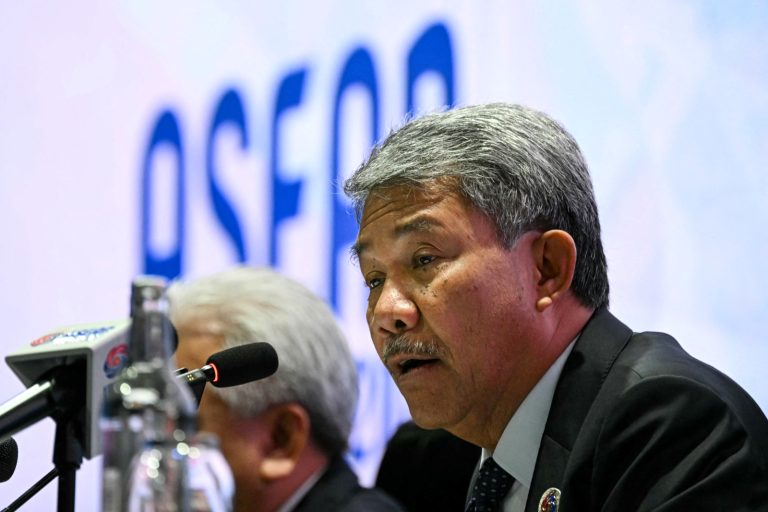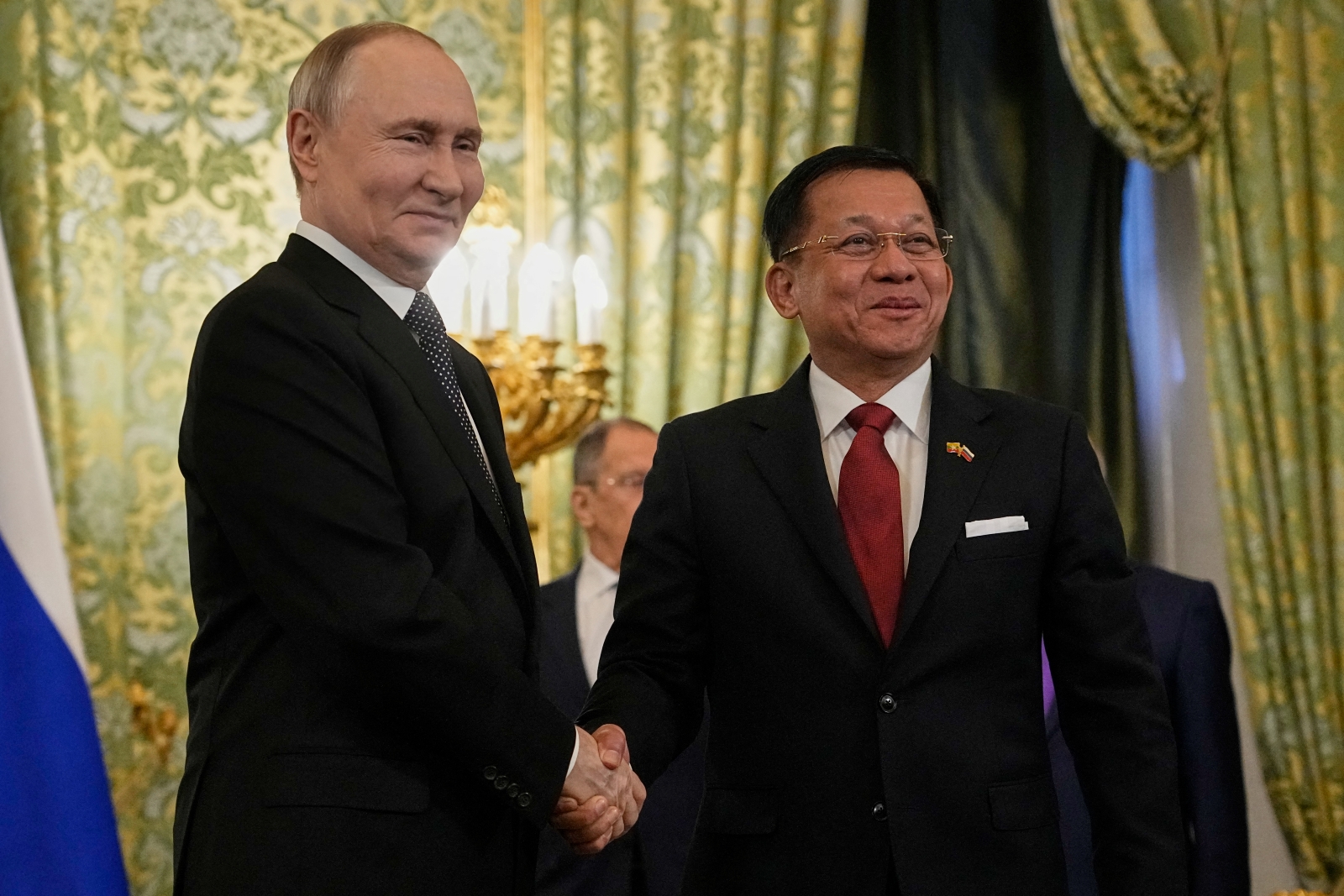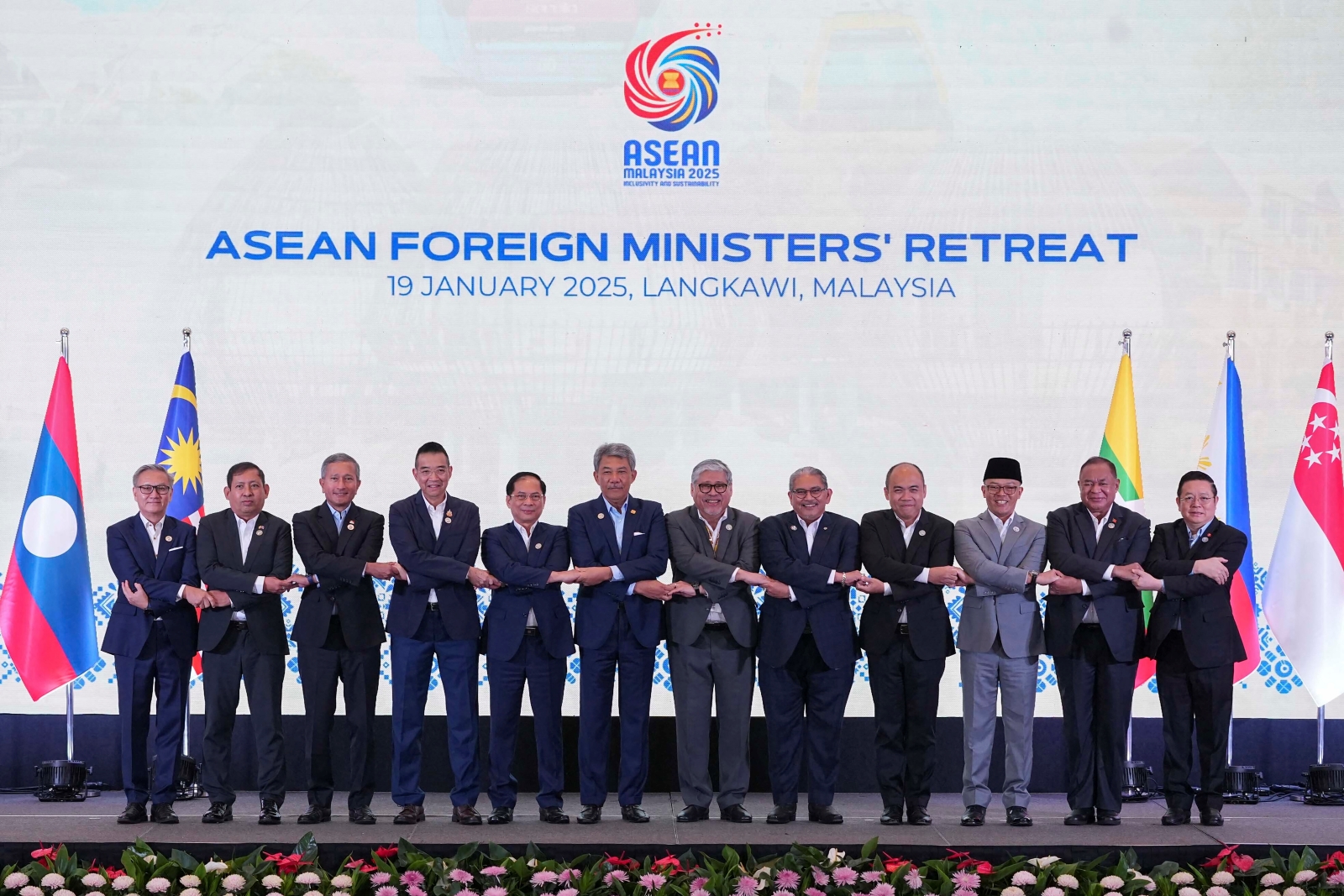EDITORIAL
The regional bloc is confronting Myanmar with a mixture of immobilism and wishful thinking, while other actors intervene more effectively – to the regime’s benefit.
This year’s chair of the Association of Southeast Asian Nations, Malaysia, has shown a puzzling optimism about Myanmar. On Wednesday last week, Prime Minister Anwar Ibrahim said he had seen “remarkable progress” in resolving the country’s conflict, adding that the junta and resistance forces are starting to engage in “indirect talks”.
The Malaysian PM’s words came the week after a regime airstrike on a school killed 22 children and two teachers in Sagaing Region. Following the 7.7-magnitude earthquake in central Myanmar on March 28, the junta announced a unilateral ceasefire to facilitate rescue and recovery efforts, but since then it has ramped up its campaign of airstrikes including in areas affected by the quake.
Last month, Anwar met junta chief senior General Min Aung Hlaing in Bangkok and urged him to respect his own ceasefire and allow post-quake humanitarian aid to be delivered fairly and impartially. “That assurance was given,” Anwar said naively.
Meanwhile, some resistance forces have declared their own unilateral ceasefires, but have continued to seize and attack junta positions. Yet, Malaysian foreign minister Mohamed Hasan proposed “the extension and expansion of ceasefires beyond the currently [earthquake] affected zones”, despite the continued fighting and the fact that only the ceasefire announced by the parallel National Unity Government was geographically limited.
To be fair, the foreign minister refused to endorse the junta’s election, planned for December, if the regime fails to abide by ASEAN’s Five-Point Consensus. The 5PC has since April 2021 called for an end to violence, humanitarian aid and inclusive dialogue to resolve Myanmar’s conflict “in the interests of the people”. Mohamed said there was “no point” having a vote if all citizens can’t participate, seemingly referring to the division of the country between regime and resistance territory. But packaged with rosy talk of extending ceasefires, the Malaysian rhetoric reveals a worrying disconnect from the harsh realities on the ground.
Despite clear limitations like the lack of any real enforcement mechanisms, the 5PC was a landmark agreement in the history of the bloc, which is often paralysed by its principle of non-interference in its member states’ internal affairs. But although envoys of the bloc have met individually with the warring sides in Myanmar to discuss options, an ASEAN-mediated dialogue between them remains a distant prospect. A bilateral ceasefire was agreed in January between the junta and the Myanmar National Democratic Alliance Army, but it was brokered by China – with ASEAN playing no role.
The 5PC’s failure to produce any comparable outcomes didn’t prevent ASEAN’s secretary-general, Cambodian diplomat Kao Kim Hourn, from describing the agreement as “beautiful” last week. He added that “as long as we bring down, you know, large-scale fighting to a smaller one, as long as we can bring people to the table, that’s progress”. The problem is, once again, that the conflict has not diminished.
Some hope had been put in Malaysia’s chairmanship of the bloc this year after the limp performance of its predecessor Laos. Alongside Indonesia and Singapore, Malaysia had been one the most vocal critics of Myanmar’s 2021 coup. However, the appointment of former Thai prime minister Thaksin Shinawatra, who had a close relationship with Myanmar’s previous military regime during his tenure in the early 2000s, and former Cambodian prime minister Hun Sen, an authoritarian who turned his country into a de facto one-party state, as “informal advisors on ASEAN affairs” to Anwar raised suspicions that past anti-junta rhetoric would be considerably watered down.
Five months into its chairmanship, Malaysia has little to boast of on Myanmar, while ASEAN more broadly is sticking to a plan that has produced no tangible results in four years. The problem is not only the intractability of Myanmar’s war, but also a bloc that is unable to learn from its errors and change tack when the situation demands it.
There are perhaps some things ASEAN could be doing to enforce the 5PC rather than just wringing its hands. Measures could include threatening to expel Myanmar from the bloc or cutting the military’s business and banking ties in the region – rather than member countries waiting to be shamed by human rights reports before taking any action, as happened with Singapore and Thailand. Such approaches are well out of ASEAN’s comfort zone, but the bloc can hardly expect compliance without the threat of serious penalties.
Meanwhile, Myanmar’s neighbours China, Thailand and to a lesser extent, India, have been stepping into the vacuum of effective diplomacy, eroding the tenet of “ASEAN centrality”. To be fair, these countries have more at stake in Myanmar than others, if only for their shared borders with the country, but their interventions have been to the benefit of the regime and not necessarily “in the interests of the people” as the 5PC text says.
For instance the most influential actor, China, has boosted the junta by successfully pressing the MNDAA to withdraw from the northern Shan State hub of Lashio in April. Thailand, meanwhile, has led a “Track 1.5” diplomatic initiative that, over the last couple of years, has convened Myanmar’s neighbours alongside interested ASEAN nations to engage the junta leadership directly – undermining ASEAN’s consensus to exclude top regime officials from meetings.
A popular saying goes that the definition of insanity is doing the same thing over and over and expecting different results. As ASEAN muddles through Myanmar’s crisis using stale strategies, it risks losing its much-touted centrality to more powerful and shrewd international actors. For this, the bloc has only itself to blame.







